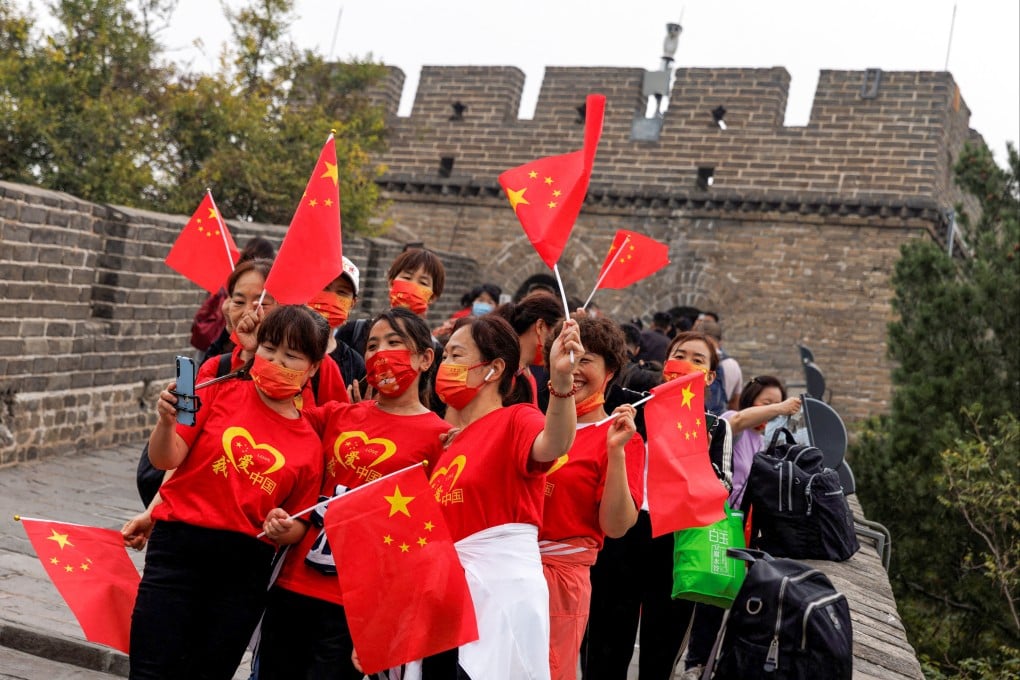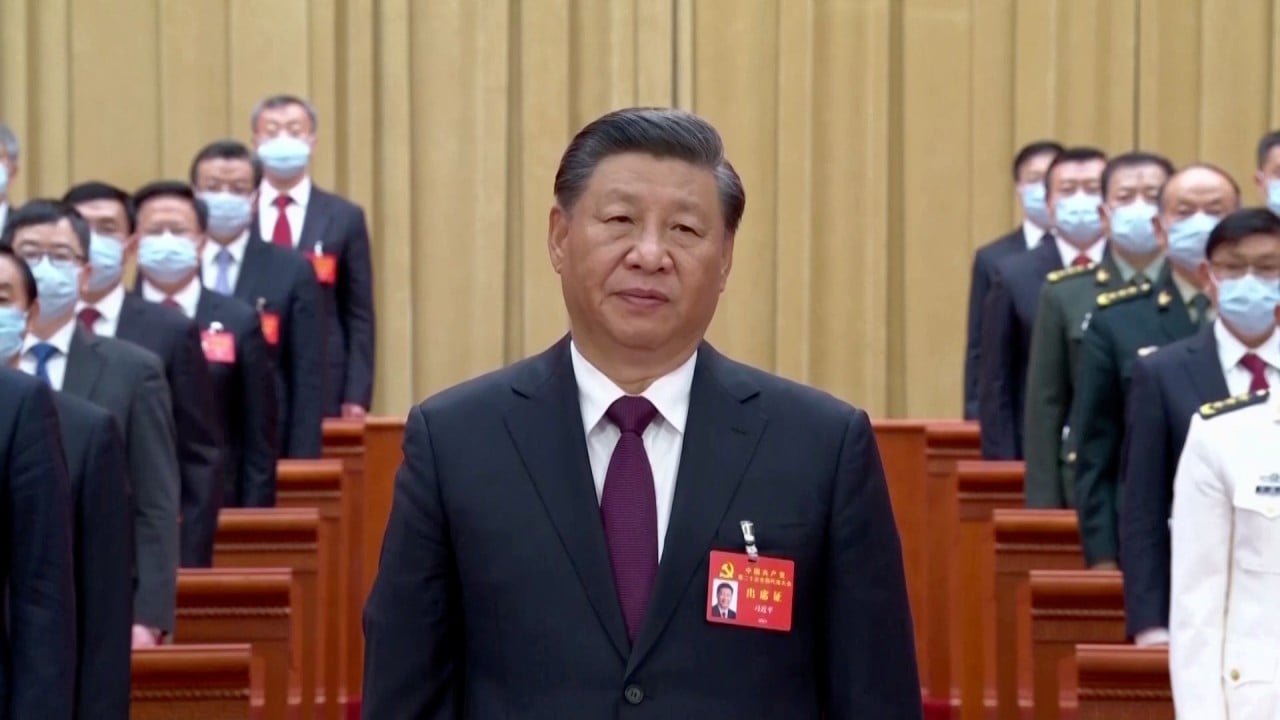China’s Communist Party cements ‘common prosperity’ as core economic agenda
- Constitutional revisions also call for acceleration of the ‘dual circulation’ concept
- Decision comes as structural problems mount at home and headwinds gain strength abroad

The revisions came amid fierce debate about whether Beijing is leaning towards a more inward course and prepared to sacrifice some growth to counteract widening socioeconomic inequality as structural problems mount at home and headwinds gain strength abroad.
Although “common prosperity” was already in the charter, its context is expected be restructured to put fresh focus on the goal when the full text of the changes are made public.
Delivering his work report to more than 2,000 party delegates last Sunday, Xi ramped up his “common prosperity” rhetoric by speaking for the first time about tightening oversight of the way wealth is accumulated.
The response among analysts has been mixed, with some seeing it as “a warning signal” for the wealthy despite repeated denials from authorities that they will impose a Robin Hood-style tax.
The party’s new constitution has underscored the shared development of the non-public sector as a part of the “important pillar” of China’s economic system, with the public sector as the main body.
